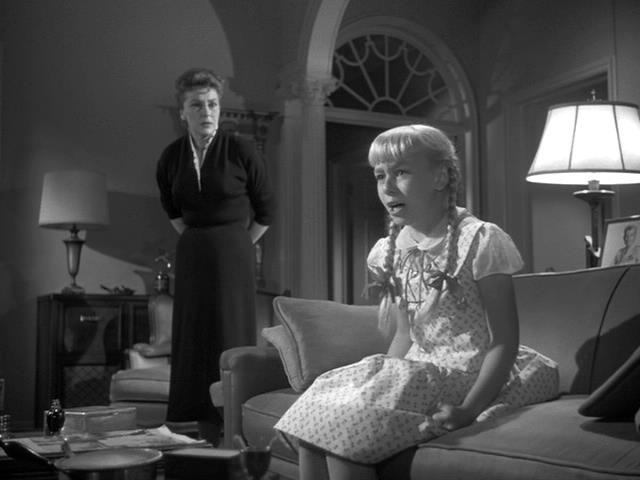
 |
| Photo © 1956 Warner Bros. Pictures |
| Academy Award Nominations: | |
| Best Actress: Nancy Kelly | |
| Best Supporting Actress: Eileen Heckart | |
| Best Supporting Actress: Patty McCormack | |
| Best Cinematography (Black & White): Harold Rosson | |
| Golden Globe Nominations and Winners: | |
| ★ | Best Supporting Actress: Eileen Heckart |
| Best Supporting Actress: Patty McCormack | |
| Permalink | Home | 1956 | ABC | Blog |